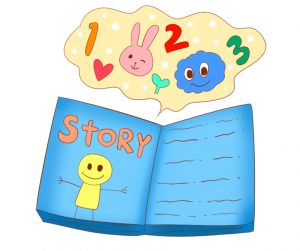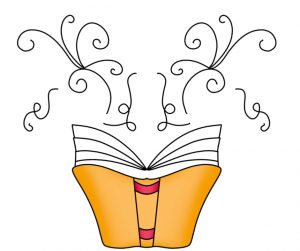Differences Between Subject Matter and Theme: Every literary work of art is made up of certain elements which include theme and subject matter, amongst other elements. Subject matter and theme are two different concepts and elements in a literary work of art, although they merely play a derivative and relative role unto each other.

Recommended: Countries with the Most Handsome Men in the world 2022
Meaning of Subject Matter
The ordinary meaning of subject matter is that which is made the object of thought or study. This import is still not deviated from in literature. In literature, subject matter refers to the original topic of discourse or the substantive theme in a written piece. The subject matter of a work is like a foundation upon which the central ideas are based by the writer. Subject matter is what gives the story a base and direction.

It is like an umbrella under which every other element can be contained. What make up the subject matter of a written piece are the events, settings and character as was chosen and structured by the author in his work. The subject matter of a literary work could be about civil wars, the thrills of pre-independence politics.
Love life in colleges, racial discrimination in South Chicago, and so on. Without the subject matter there can be no basis for theme. This is because it is from the subject matter that the theme flows. This is why the relationship between subject matter and theme has been described as derivative and relative.
Also see: Differences Between a Short story and a Novel
Meaning of Theme
The position of theme and subject matter are always misplaced if not careful. This is because, as already been established, both concepts share some sort of relationship which makes their role to be complementary. Theme, also known as thesis, is a recurring idea or motif in a literary work through which the writer expresses his views. Themes are the ideas that are dominant in a written piece which forms the underlying message that is being relayed by the writer. It is through the themes that the writer expresses his opinion on the subject matter being written on. Theme is also referred to as the central idea. The theme of a written piece constitutes moral lessons, views or ideas as is being implicated by the writer.

The subject matter of a piece can also qualify as a theme where the writer makes it so. For instance, where the subject matter of the piece is racism, automatically one of the dominant incidences in the work becomes racism which also qualifies as theme. One literary piece can contain several numbers of themes.
Also see: Differences Between Passive Income and Active Income
For instance, themes in “Black Boy” by Richard Wright includes theme of racism, violence, poverty, inhumanity, fear, masculinity, religion, isolation, failures, and so on. Themes can also be highlighted or expressed in sentences. For instance, the patient dog eats the fattest bone, all that glitters is not gold, endurance complements hard work, etc.
In every literary work, certain themes may be dominant that the others. Hence, there are minor themes and major themes. Major themes are those that are of utmost significance which occurs frequently in a literary piece. These are the kind of themes that may be confused with subject matter.
It is usually very easy to identify the major themes because they are constituted by major occurrences, whereas in finding themes, one might even neglect the minor ones because they may not be easily identified. Minor themes are those which appear briefly in a literary work and do not from part of the substance of the work. In some cases, the subject matter of a literary work can as well be one of the themes; usually the major one.
Also see: Advantages and Disadvantages of being a Teacher
How Do You Identify Themes in a Literary Piece?
Themes are the central points and dominant messages which a writer has highlighted in his work. Understanding what a theme really is, is a major step to being able to identify themes in a literary piece, followed by taking note of the subject matter of the piece. In identifying the themes, it is also necessary to note the arrangement of events (the plot) in the written piece, the setting, characterization and tone as was employed and structured by the writer.
Another aid to discovering the central ideas is by understanding the series of conflicts which has arisen in the literary piece and how they were resolved if there is any resolution. Themes can be easily identified after the work has been read in whole.
Also see: How To Make People Respect You
Differences Between Subject Matter and Theme
1. The subject matter is the topic which a literary work is based which runs through the whole text. The subject matter forms the root of a literary piece, whereas theme consists of the central ideas which flow from the main ideas.
2. Subject matter is the foundation upon which the theme and other elements are based, whereas theme is the dominant and significant ideas which are implicated in a literary work through stories, contents and analysis.
Also see: Differences Between Marketing And Advertising
3. The writer relays his messages, lessons and opinions in respect of a particular subject matter trough the themes, whereas a subject matter is a subject matter simpliciter and does not relay the writers’ view about itself.
4. Theme is what gives purpose to a literary piece whereas a subject matter is that which dictates the direction of a literary piece.
Also see: 13 Traits/Signs Of A Bad Girlfriend
5. The theme of a play must be connected to or flow from the subject matter. Themes are used to address the issues that were given rise to by the subject matter. It follows therefore that theme left to operate in isolation, would defeat the purpose of the literary piece. On the other hand, it is theme that gives meaning and full effect to a subject matter. Themes are used to explain the subject matter. The subject matter poses the issues to be analyzed and possibly be resolved by the themes.
6. A literary work can comprise several themes; some which are major themes and others minor. On the other hand, there can only be one subject matter in a literary work, and a subject matter is always dominant.
Also see: How to start a conversation with someone easily
7. In a literary piece, the subject matter is explicit and often times expressly mentioned at the beginning of the text. One does not need to have read the whole text in order to know or identify the subject matter.
On the other hand, themes are implicit; they are not directly expressed or highlighted in a literary work. They are rather to be deduced or discovered by the readers within the text after they must have read and understood the message of the writer.
8. Themes are universal and can be applicable to various general circumstances asides the particular subject matter written on, whereas subject matter only covers the subject or main substance of the literary piece.
Also see: How To Tell Someone About Yourself: 6 Tips
Conclusion
Subject matter and theme are closely related but not any to be confused with the other. There are sometimes where one of the major themes in a literary work includes the subject matter itself. For instance, where the subject matter of the book is about domestic violence, it would follow in this case that the most dominant theme present is also the theme of domestic violence.
This too illustrates the derivative relationship of the two concepts. Their clear distinction however is that while subject matter is the topic of the literary piece, themes are the elements and measures through which the writer speaks on the subject matter.

Edeh Samuel Chukwuemeka, ACMC, is a lawyer and a certified mediator/conciliator in Nigeria. He is also a developer with knowledge in various programming languages. Samuel is determined to leverage his skills in technology, SEO, and legal practice to revolutionize the legal profession worldwide by creating web and mobile applications that simplify legal research. Sam is also passionate about educating and providing valuable information to people.